Today is the second Thursday of August, which is official book review day here on the blog (in case you missed it, there’s more on the new posting schedule at the end of this post). It’s not every month that I get to share both my favorite and least favorites reads from the year, but that’s the case with this month’s review roundup! Read on to find out which books captured those top and bottom slots!
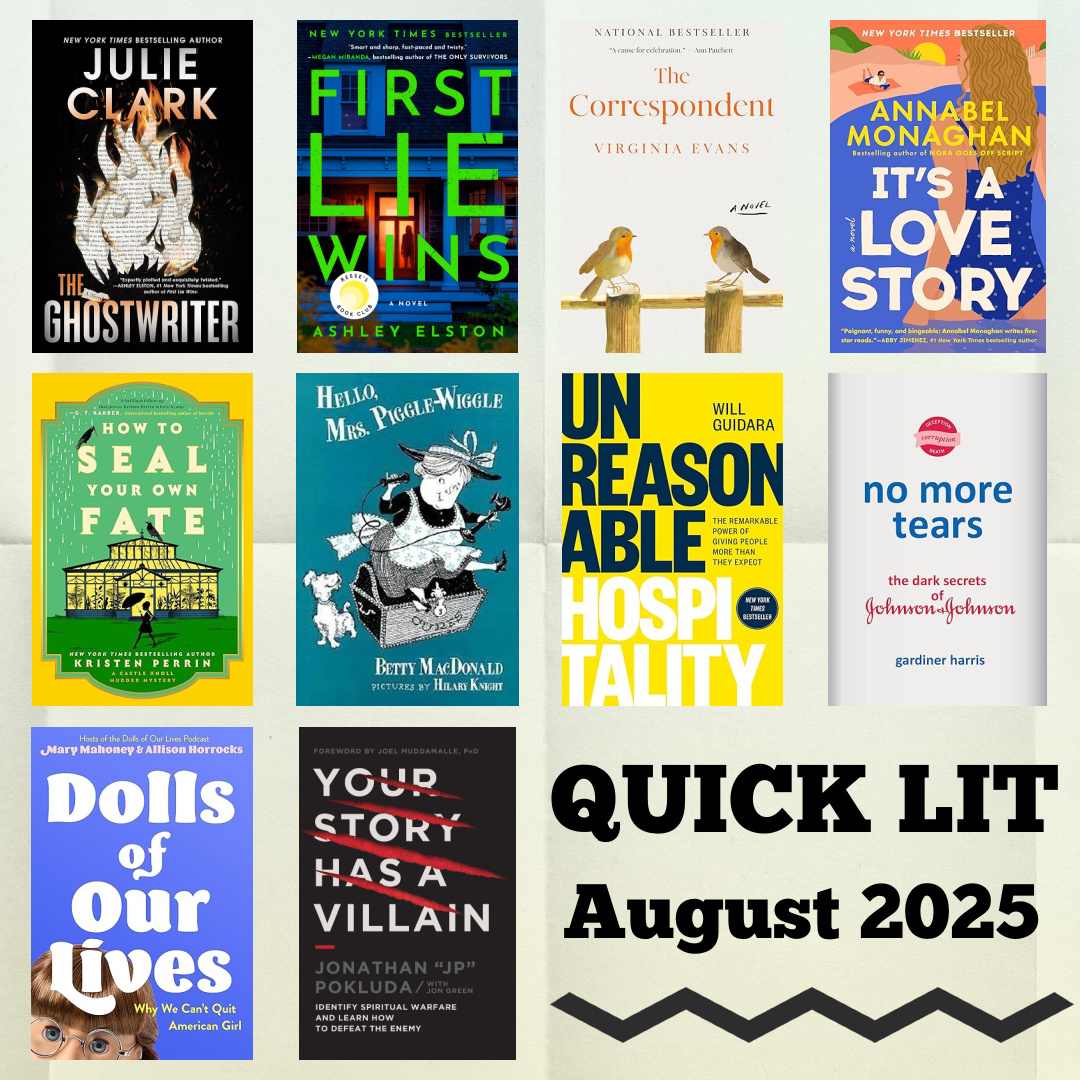
FICTION
The Ghostwriter, by Julie Clark: Olivia Dumont is a once-successful ghostwriter whose life—professional AND personal—is in shambles following an (unfair) public falling out with another author. Olivia is given a surprise opportunity to redeem her name and her career when she’s invited to ghostwrite the memoir of thriller writer Vincent Taylor, who finally wants to share all he knows about the murders of his brother and sister in 1975, when they were teens. For years, there have been whispers that Vincent was the one who killed them, but Vincent has never spoken out about what happened that night—until now.
Olivia is eager to find the truth about Vincent and his siblings. . . especially because Vincent is her estranged father, and she’s always wondered about the secrets that caused irreparable strain on their relationship. But when Olivia arrives at Vincent’s Ojai home, she discovers that this job will be more difficult than she’d first assumed: Vincent is in the early stages of dementia, and even HE may not know or remember the whole truth of the story he wants to tell. Together Vincent and Olivia embark on a treasure hunt, decades in the making, to discern the truth and preserve what remains of their family.
I loved this genre mashup with an interesting narrative structure (many narrators and time frames) that brings a tender family element to a compelling historical mystery. The insights into the ghostwriting process are fascinating and prompt interesting reflection on the stories we tell and how we choose to share them; the nature of truth; and the complicated ways that past facts are shaped by time and memory and layers of societal input. There are many heartbreaking moments as we see the devastating generational impact of trauma, as well as the hard realities of dementia, but these are softened by moments of redemption and hard-earned, sacrificial love.
The mystery here is set in 1975; that was a very different time, and we don’t shy away from some of the less-than-ideal realities of growing up in that era. The author brings in some political issues relating to feminism and abortion, and I wasn’t thrilled with this part of the story. There were also a few plot threads that didn’t entirely line up. But as a whole I loved this book, with a propulsive story and a conclusion that I never saw coming. (Heads up: if you need tidy finishes, this one might not be for you).
My Rating: 4.5 Stars (Rounded to 4 Stars on Goodreads) // Book Format: Kindle
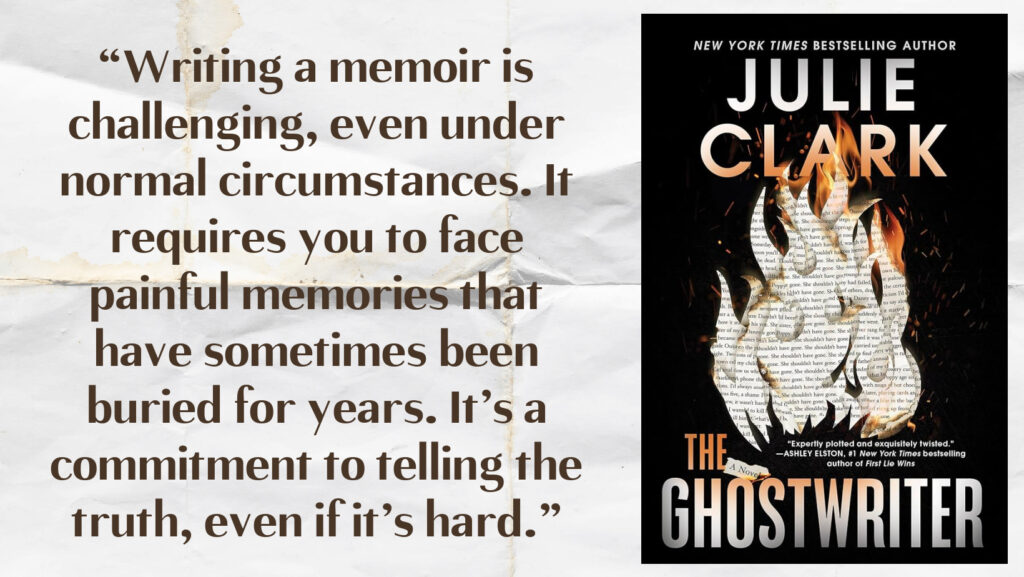
First Lie Wins, by Ashley Elston: Evie Porter is a total catch: she’s gorgeous, brilliant, easy-going, and has no family baggage (or really any family to speak of). So it’s no surprise that she’s worked her way into the life of Ryan Porter and is quickly winning over his closest friends. But what none of them suspect is that Evie Porter is not her real name, and nothing about her carefully curated image is true.
I know that’s not much of a setup, but the publisher’s blurb gives away FAR too much and I think it’s best to go in blind: the fun of this book is finding out who Evie really is and why she’s hiding her true identity. The story is totally bananas but extremely propulsive; I had no clue what was going on for the first half of the book, but I flew through it in search of answers and loved how this cat-and-mouse story unfolded, with tons of twists that kept me on my toes from start of finish.
I tend to prefer books with deeper themes and more character development, but sometimes I want a book that is straight up can’t-turn-pages-fast-enough story, and this one totally delivered. It’s clever and mysterious and definitely lives up to the hype.
My Rating: 4.5 Stars (Rounded to 5 Stars on Goodreads) // Book Format: Kindle (followed along in print, which I’d recommend for keeping various timelines straight)
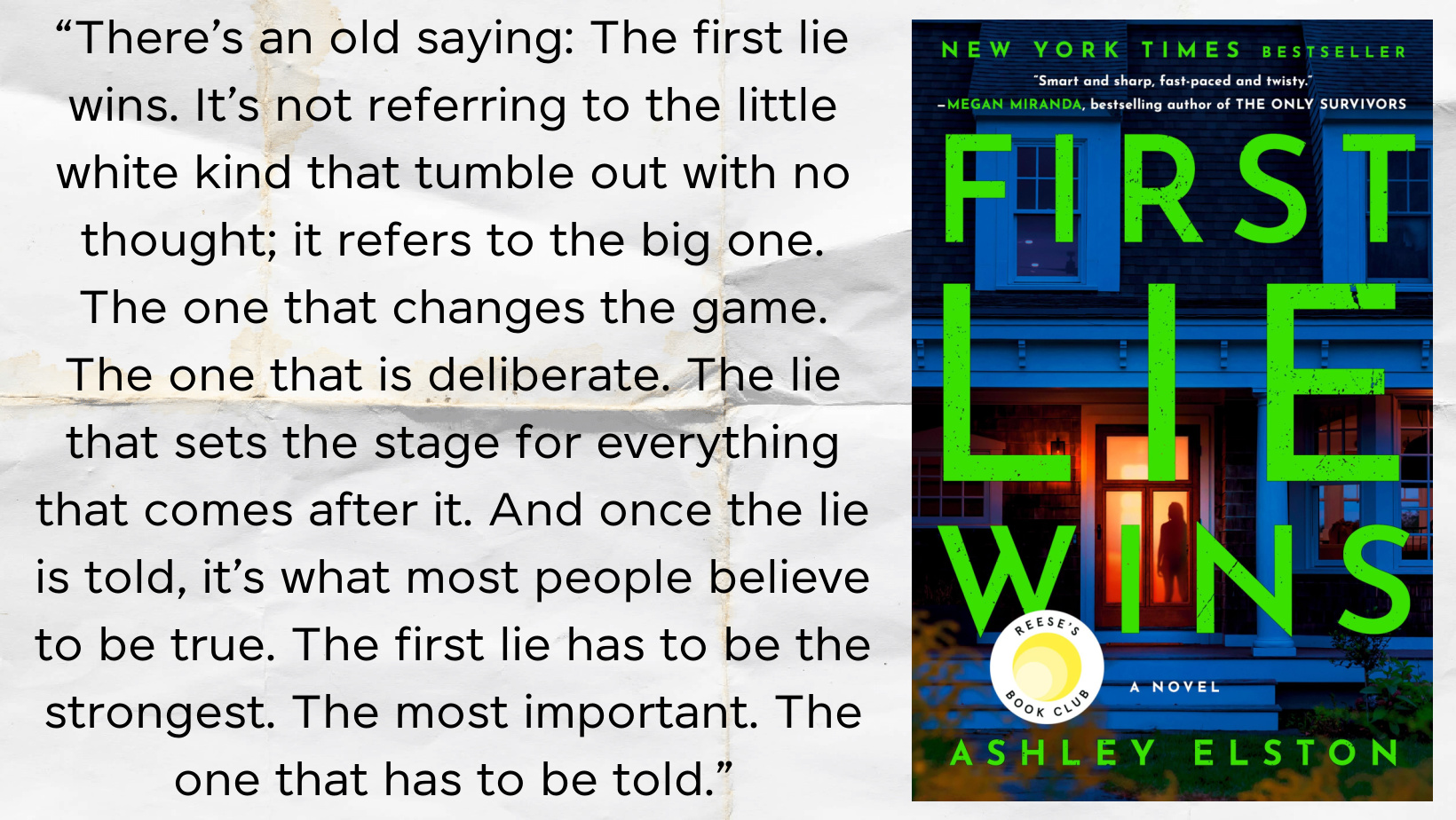
The Correspondent, by Virginia Evans: In this heartfelt epistolary novel, we meet Sybil Van Antwerp, a brilliant-yet-prickly woman in her seventies who is spending her retirement from a career in law engaging in a hobby that has been a touchpoint of her whole life: writing letters. For Sybil, letters are “like the pieces of a magnificent puzzle, or, a better metaphor, if dated, the links of a long chain.” Letters are her way of preserving her own life and creating meaning in the lives of others, and she writes to everyone: her brother; her lifelong best friend who shares her passion for books; her kindly neighbor (and potential suitor); a handful of beloved authors (a few of whom become treasured penpals); a service representative who helps Sybil sort out a mystery from her past; a lonely teen who becomes something of a grandson; and one unnamed individual whose never-sent letter has been added to through the years, serving as a sounding board for Sybil’s hardest thoughts.
Through her her correspondence, Sybil makes sense of the great successes of her life and also her many failures and regrets. And in her letters, we get a picture of this woman who has always strived to lead a perfect and balanced life but who now sees that facade slipping away. Through the decade of Sybil’s letters, beginning in 2012, we watch this woman in the sunset years of life discovering a new and unexpected way to view the world and herself as she makes peace with her past in ways that ripple through her letters, spilling over into the lives of those she has loved and lost and is learning to love anew.
I had sky-high expectations for this book that many of my favorite readers are loving, and I am thrilled to be joining the ranks of those who adore this lovely debut. The epistolary format is my personal FAVORITE form of storytelling, and here it is done with perfection, offering a multifaceted view of Sybil and giving us just enough story without overwhelming us with details. There are plenty of heartwarming stories threaded through Sybil’s letters, as well as some enticing cultural snippets and some wonderful book talk (the letters to and from Joan Didion were such a surprise and a delight). There is also tragedy and grief, most notably over the long-ago death of Sybil’s son, and her current estrangement from her adult daughter; these are handled with a delicate but deeply believable (and sometimes uncomfortably relatable) touch. Through the sadness is so much love, humor, redemption, reconciliation, and an ever-evolving search for (and discovery of) purpose.
I loved the character of Sybil and loved her voice, especially the way that voice changed according to the recipient of each particular letter and also how her voice (and the character herself) transformed over the course of the novel. I saw so much of myself in this Enneagram 1 for whom words have always been a haven and possible buffer from the “real world,” and Sybil’s journey offered me solidarity as well as hope—that life can be beautiful despite its messiness, that there are always new opportunities for growth and connection, and that freedom lies on the other side of the pen. I wish the novel had ended differently, but this was still a solid five stars for me and possibly my favorite book of 2025.
Dear Ms. Evans,
Thank you for giving us the gift of this book. It has meant a great deal to me, and I cannot imagine a reader who will not come away touched by it in some significant way.
With heartfelt thanks,
Kendra
My Rating: 5+ Stars (I’d give it more if I could.) // Book Format: Kindle
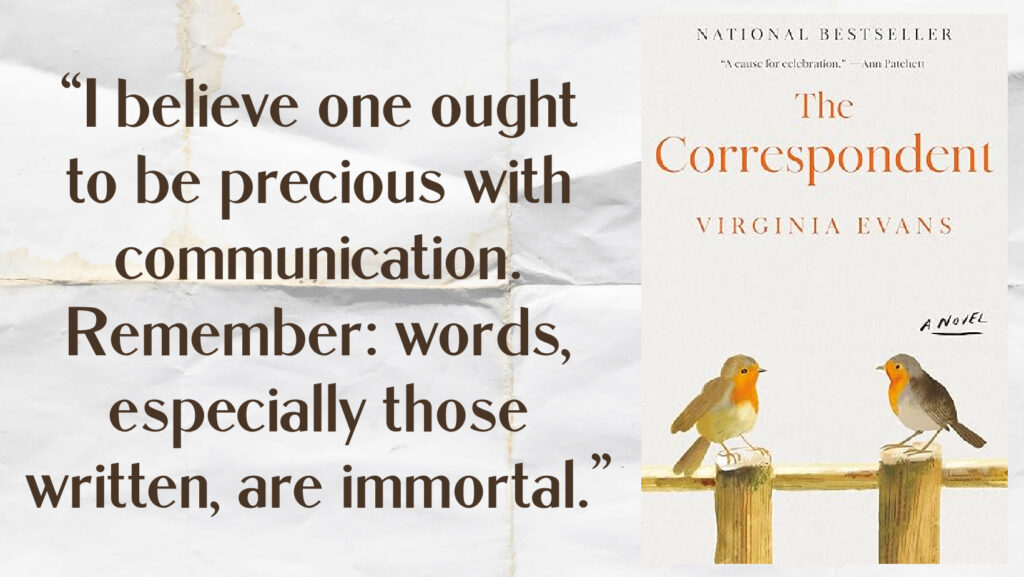
It’s a Love Story, by Annabelle Monaghan: As an adolescent star of a beloved American sitcom, Jane Jackson learned at a young age the importance of projecting the right image. Back then, “Poor Janey Jakes” kept audiences laughing with her goofy faces and willingness to be the butt of the joke. Now, she uses perfectly curated outfits and preplanned conversation topics to get that second date or capture the attention of movie producers in her job as a Hollywood studio executive. Unfortunately her pristine image hasn’t done many favors for her love life, but she seems to finally be gaining some traction in her career, especially now that she’s found a movie script she’s certain will catapult her to success.
Desperate to move her project forward, Jane promises that she can get Jack Quinlan (a major popstar and Jane’s one-time crush) to write a song for the movie. But she’s going to need the help of cinematographer Dan Finnegan, another former crush whose good looks are no match for his pompousness and overly-sentimental personality that is the opposite of what Jane is looking for in a partner. Dan has as in with Jack, and if they can overcome their rivalry, Jane and Dan just might have success in making a movie that means a great deal to them both.
Jane and Dan return to Dan’s childhood home on Long Island, where Jack is playing in a festival. The week with Dan and his family opens Jane’s eyes to a new way of doing love and family and relationships; but it also cracks open a past she isn’t sure she’s ready to revisit, especially if it means she might have to accept the reality of something she’s never believed in: true love.
I’ve had mixed success with Monaghan’s romances in the past and this one comes in right at the middle for me. I enjoyed the Long Island setting and cozy/gentle prose, and I adored Dan’s big Irish family, with its five rambunctious sons and adoring parents with an aspirational marriage. But I struggled with the book’s far-fetched premise, and had trouble buying into the romance: Jane’s personal hangups felt contrived, causing the “enemies” part of Dan and Jane’s “enemies-to-lovers” relationship to feel forced while the “to lovers” part is a little too convenient. The romance is sweet and not too spicy (which I liked), but also pretty cheesy (which I am on the fence about) in a way that had me wanting some banter or added plot twists to liven things up.
There’s a parallel storyline regarding Jane’s relationship with her mom; this was interesting, especially after reading that Monaghan was inspired by Jennette McCurdy’s memoir. As much as I enjoyed the idea of this plot point, the execution felt melodramatic, like a painful therapy session playing out in real time and affecting the romantic story in ways that just didn’t ring true.
Final verdict: an enjoyable, but not especially, memorable beach read. If you’ve liked Monaghan’s last books you’ll likely enjoy this one, but it isn’t the standout I’d anticipated and doesn’t hold a candle to Summer Romance.
My Rating: 3.5 Stars (Rounded to 3 stars on Goodreads) // Book Format: Kindle
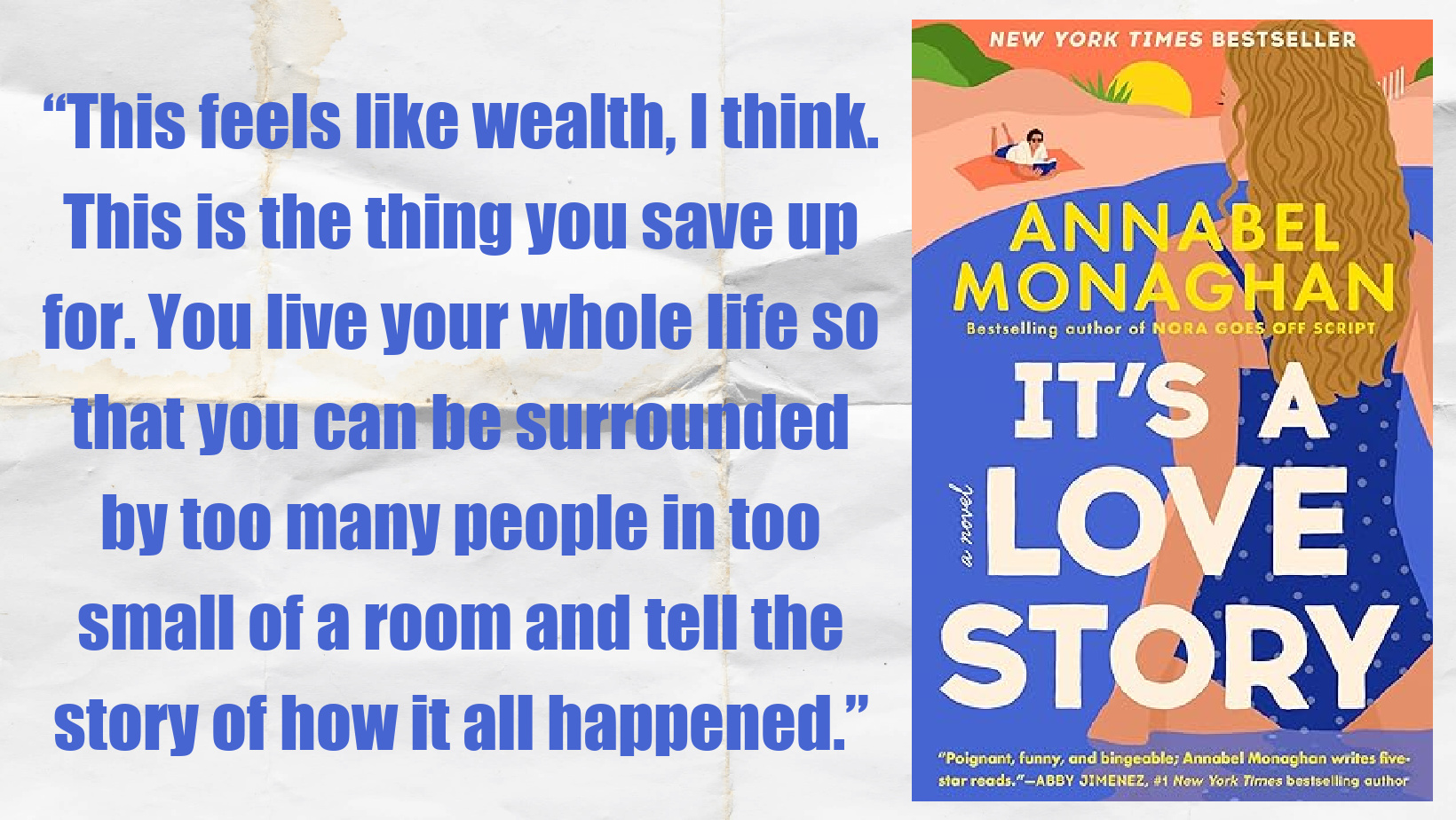
How to Seal Your Own Fate, by Kristen Perrin: Hardly any time has passed since Annie Adams moved to Castle Knoll after solving her great aunt Frances’ss murder and inheriting her estate. But it appears that Annie will need to call on her sleuthing skills once again when the body of fortune-teller Peony Lane is discovered inside the locked Gravesdown Estate. Just before her murder, Peony Lane had delivered Annie a cryptic message about another mystery, fifty years in the past.
Back in 1967, teenage Frances Adams is caught between two men: Ford Gravesdown, one of the only remaining family members of a wealthy local family with a dastardly reputation, and Archie Foyle, a local teenager with whom Frances has teamed up to investigate the mysterious car crash that took the lives of Ford’s family several years prior. Frances’s diaries document every discovery—from the Gravesdown family’s misdeeds to the various deceptions, betrayals, and crimes that abound within the small town of Castle Knoll. But Frances can’t keep her secrets forever, and her files just might hold the key to solving several mysteries, past AND present.
This is the second book in this series which MUST be read in order: not only does this second edition contain several spoilers from How to Solve Your Own Murder, but much of the story will not make sense without reading that book first. (Even having read Book One, I found myself confused through much of this book because I couldn’t recall specifics of How to Solve...) And while I loved that first installment, this one didn’t work as well for me. I’m a sucker for an idyllic English setting, but the setting here felt like an afterthought rather than a central part of the story. I struggled to distinguish between the narrative voices of Frances in the past and Annie in the present. And while the premise of double mysteries spanning several generations of sleuths is an intriguing one, the connection between past and present mysterious is tenuous at best, and both are pretty convoluted, leaving me more frustrated and confused than intrigued.
I don’t regret returning to Castle Knoll to spend a little more time with these characters and to piece together story threads left unanswered from Book One, but I doubt I will continue with the series.
My Rating: 3 Stars // Book Format: Kindle
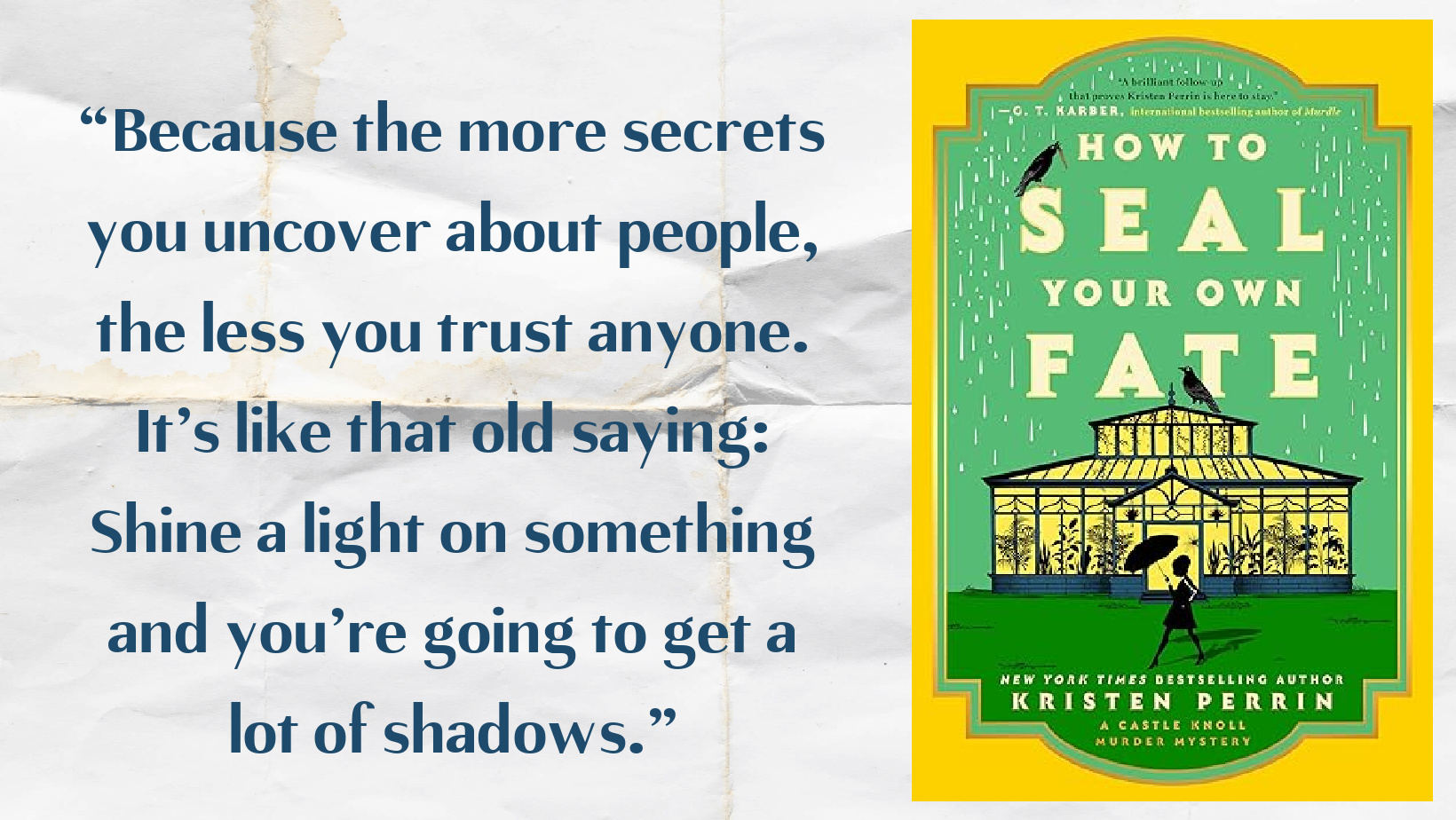
MIDDLE GRADE
Hello, Mrs. Piggle-Wigglie, by Betty MacDonald: I think every parent has wished for a magical toolbox with cures for every one of our parenting woes. For the families in Mrs. Piggle-Wiggle’s neighborhood, that toolbox is a reality. Whether their child is a show-off or a bully, an insufferable crier or painfully slow, the answer can be found with the kindly old woman who loves children as much as they love her and her upside-down house. Mrs. Piggle-Wiggle might offer a potion or medicinal treat (like a lollipop that causes rude whisperers to go mute) or suggest just the right solution (such as giving the bully an opportunity to lead); whatever form they take, those bad habits don’t stand a chance to Mrs. Piggle-Wiggle and her whimsical remedies.
I adored this series as a child and have enjoyed introducing these stories to my own kids—this time through the first edition (published in 1955!) that has sat on my bookshelves since I was younger than they are now. Some parents might take issue with Mrs. Piggle-Wiggle’s approach to habit curing (that addresses symptoms rather than root causes), and some of the language around behavior and physical bodies hits differently for the 21st-century reader. But I love the wholesome nature of these books, the fascinating portrayal of family life in the 1950s (probably glamorized [it’s very Leave It to Beaver] but still fun to read!), the hilarious names (Forthright Semicolon! Harvard and Cornell Foxglove!), and the no-nonsense approach to bad manners and misbehavior. The kids and I all found these stories humorous as well as insightful, prompting some good discussion around character, behavior, and how WE would solve the problems presented in each story.
It’s hard to beat Mrs. Piggle-Wiggle when searching for fun, deceptively-instructive stories. And the stand-alone nature of each chapter makes these books perfect to read-aloud.
My Rating: 4.5 Stars (Rounded to 4 Stars on Goodreads) // Charleston’s Rating: 4.25 Stars // Sullivan’s Rating: 4.5 Stars // Kalinda’s Rating: 5 Stars // Book Format: Print
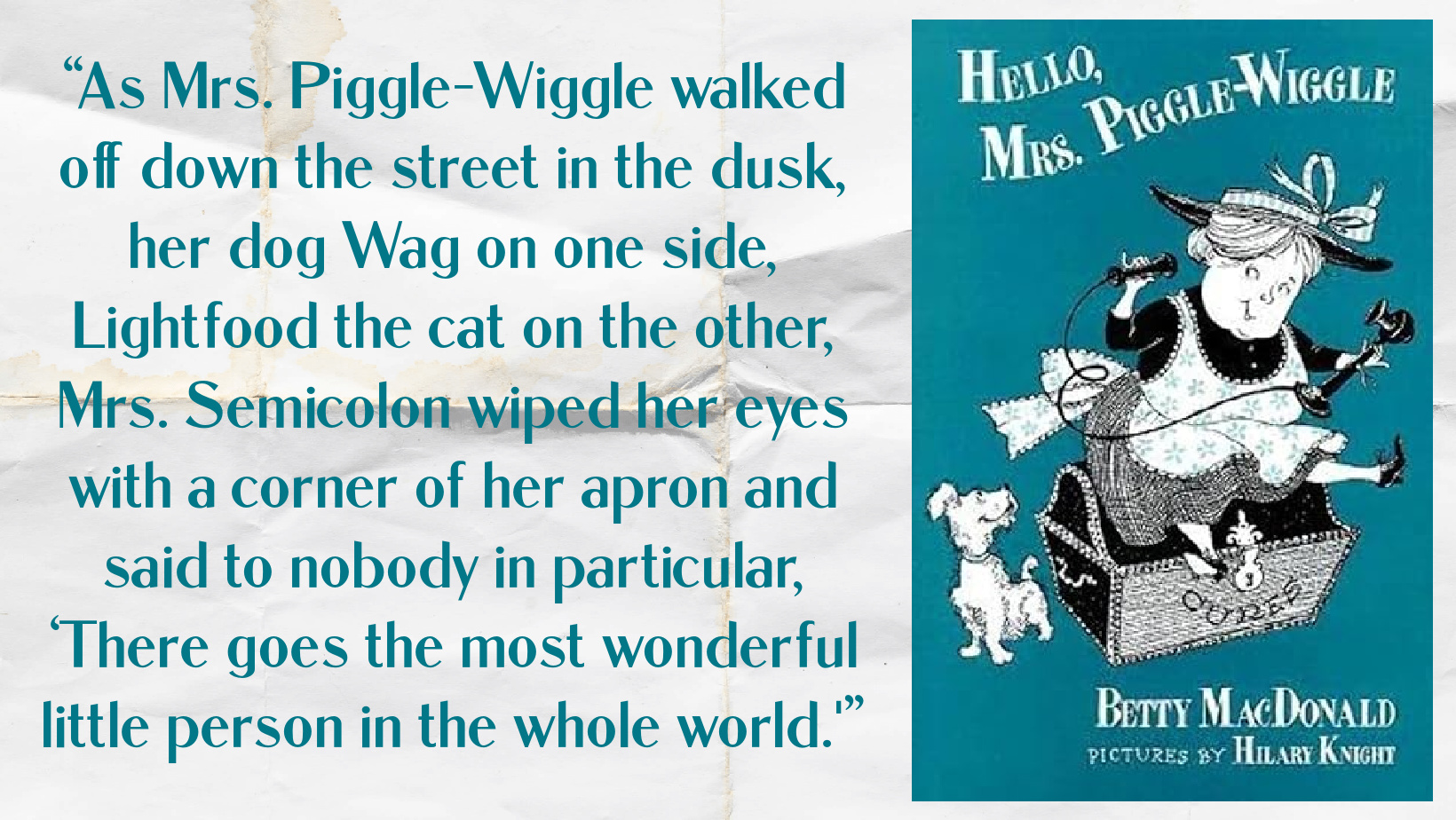
NONFICTION
Unreasonable Hospitality: The Remarkable Power of Giving People More Than They Expect, by Will Guidara: American restauranteur Will Guidara was just twenty-six when he became the general manager of Eleven Madison Park. At the time, the New York eatery was a struggling two-star brasserie that had never lived up to its potential, but within eleven years under Guidara’s management, EMP had received four stars from The New York Times, a couple of James Beard Awards, and the top spot on the World’s 50 Best Restaurants. In Unreasonable Hospitality, Guidara shares the secrets to his success, from creating a culture of collaboration to intentionally breaking the (right) rules, establishing a partnership between the kitchen and dining room, clearly communicating expectations, thoughtfully but intentionally demanding perfection, and—most notably—offering diners stand-out experiences that transformed a pleasant meal to a truly extraordinary dining experience of a lifetime. Guidara offers an excellent template for every restaurant owner, but his ideas are not just for those in the restaurant business: Guidara is passionate about the pursuit of hospitality for EVERY industry because “when you create a hospitality-first culture, everything about your business improves,” and “whether a company has made a choice to put their team and their customers at the center of every decision will be what separates the great ones from the pack.”
I’m definitely not the targeted demographic for this book. I am not in the restaurant business or the service industry or any industry at all; I’m just a stay-at-home mom who loves to read. But I happen to love reading books by people who are exceedingly good at what they do, especially when their pursuits involve benefitting others in some way. Will Guidara is exactly that: a success story whose success derives from identifying and meeting the needs and desires of others. I was fascinated by his stories about the world of fine dining, and I was intrigued by the ways in which he and his team blended traditional service ideas and practices with new ones to transform not just their restaurant but the fine-dining industry as a whole.
In many ways, this is a basic business book, and quite a few of the ideas presented here will be familiar to anyone in the business world or service industry (or non business folk like me who inexplicably enjoy reading business books in our spare time). But the restaurant stories take this book from helpful to fascinating. I had no idea what a real fine dining experience involved, from the fifteen courses to the waiter who greets you by name at the front door because he googled you ahead of time (and, while he was at i,t sent a complimentary bottle of champagne to your hotel). I especially loved hearing about the stand-out gestures of Guidara and his restaurant staff (such as presenting street hot dogs to a table who was overheard pining for that quintessential New York dining experience, or thoughtfully recreating a wedding dinner for a couple celebrating their anniversary). And I was inspired by Guidara’s ideas for bringing hospitality into other areas, which has me thinking about how I can cultivate a spirit of hospitality for friends and family by using that skill of noticing to make them feel special .
I listened to the audiobook and Will Guidara’s reading voice is itself a lesson in hospitality: gentle and welcoming, with just the right balance of confident assurance and gracious humility. What an unexpectedly delightful listening experience this book proved to be.
My Rating: 4.5 Stars (Rounded to 4 Stars on Goodreads) // Book Format: Audiobook
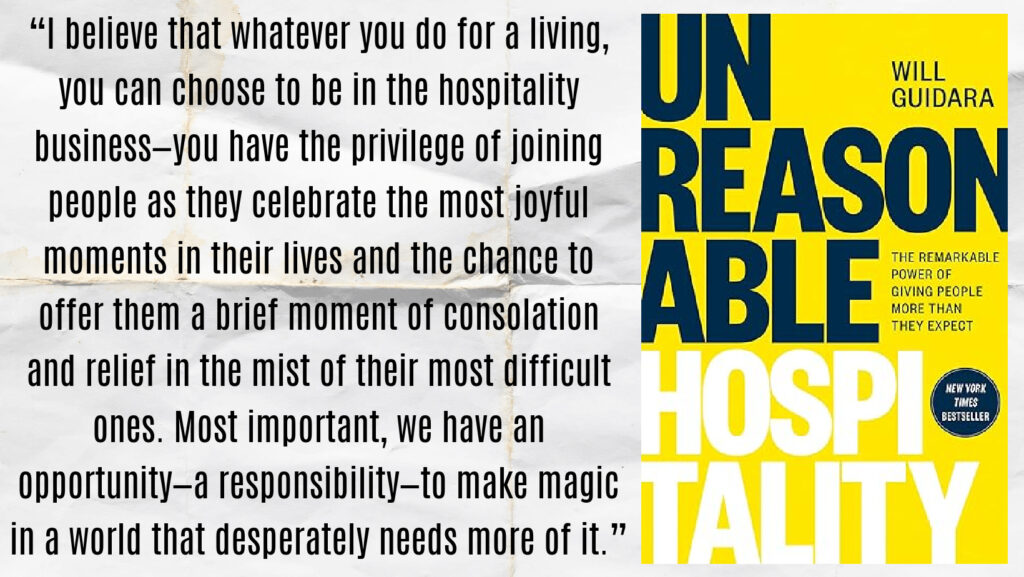
No More Tears: The Dark Secrets of Johnson and Johnson, by Gardiner Harris: For years, Johnson & Johnson has been one of the most trusted companies in America. That trust begins in the earliest stages of infancy, when mothers and their babies begin to associate the scent of the company’s baby products with comfort, protection, and nurturing, and those earliest associations and impressions are difficult to break. But that trust might not be earned.
Back in 2004, Gardiner Harris was a pharmaceutical reporter for the New York Times when he had a chance airport encounter with a sales rep for Johnson & Johnson. The woman regaled him with horror stories about the unethical sales practices of her company, as well as the devastating impact that J&J products had had on her own family. Harris never saw the woman again, but that meeting led him down an investigatorial path that revealed the dark underbelly of what he soon learned was a not-so-baby(or adult)-friendly company.
In No More Tears, Harris uncovers the evidence that points to years of deception and dangerous corporate practices that have led the company to knowingly selling problematic products, medications, and medical gear. The book is divided into four main sections exploring the bad science, unethical promotion, and subsequent cover-ups around J&J’s consumer products (such as the efforts to hide baby powder’s links to cancer); prescription drugs (with the over-prescription of anti-psychotic drugs with horrific and undisclosed side effects); medical devices (in which we learn of faulty, untested knee implants); and the Covid vaccination (J&J’s final hope for redemption despite conflicting motivations). The evidence is damning as we see how this company we all use and want to trust has been complicit in the illness and deaths of potentially millions of unknowing consumers.
I’ve read quite a few exposés this year, and this might be the most chilling one of all because of how closely it hits home. I, like most people I know, have used J&J products and like to think that it is a company I can trust. Now I know better, and while I won’t be swearing off all J&J products I’m grateful for this awareness and for the ways that companies like Johnson & Johnson are finally being exposed and held accountable for their unethical practices. Books like this one go a long way in creating more conscientious consumers who demand transparency from the the pharmaceutical industry and are no longer willing to take company promotions at their word.
Though the information here is important, I didn’t find this to be the most compelling read. The data is thorough but also somewhat tedious to read about (or, in my case, listen to). The author does a good job at bringing a human element to his information with heartbreaking stories from consumers harmed by J&J’s products, but it is a lot of information all at once and might have been better to read in small sections rather than straight through.
My Rating: 4 Stars // Book Format: Audiobook
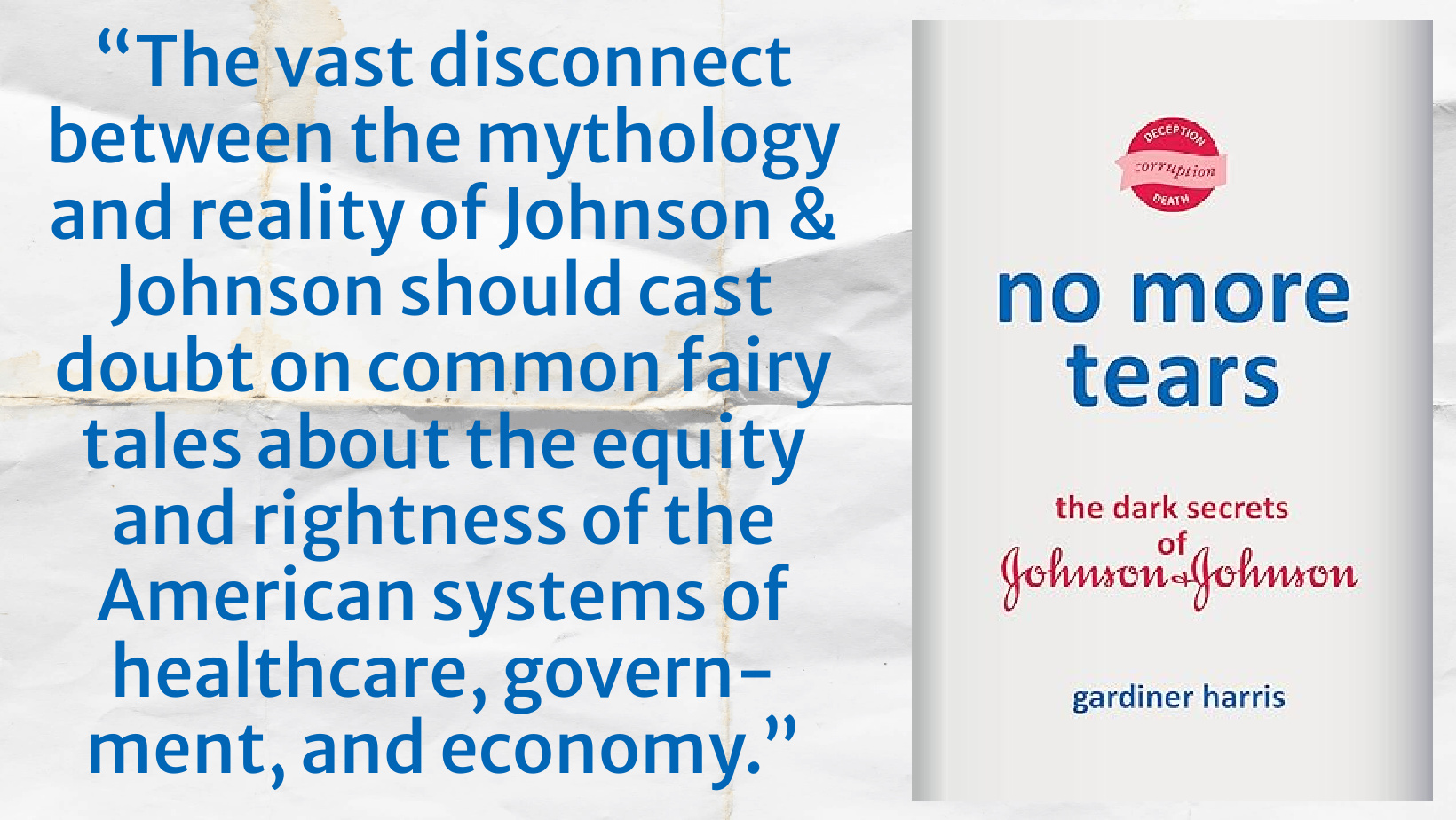
Dolls of Our Lives: Why We Can’t Quit American Girl, by Mary Mahoney and Allison Horrocks: I loved American Girl when I was young: I never had one of the dolls (I would have chosen Kirsten because she looked most like me), but I adored the books (especially the stories of Molly and Addie). So when I spotted the cover and title of this book, I immediately placed a library hold, eager for what I hoped would be a trivia-filled walk down memory lane. Unfortunately this book did not deliver the reading experience I desired. Written by two historians and podcasters around my age for whom American Girl was also an important part of childhood, Girls of Our Lives is less an exploration of American Girl and more a reflection on the authors’ interaction with the brand.
While we are given a brief introduction to the brand’s origins, as well as a few glimpses into the original characters and their stories, the authors spend most of their time discussing their childhood enthusiasm for the dolls/books (primarily Molly) followed by their critiques of the books’ shortfalls—mostly how they failed to live up to contemporary (woke) standards regarding race, sexuality, and gender identity. The authors discuss aspects of 90s childhoods and how American Girl was very much of its time (that time being the time it was written, not the time in which the books are set); how culture has changed; and the complicated nature of their fandom.
This book screams “millennial” in all the worst ways, from the authors’ centering of themselves in the story (with a self-obsession that is endemic in my generation) to their trendy disparagement of something that was meant to be innocent and educational but that did not measure up to their ever-evolving societal norms and expectations. The book is even filled with pop cultural references and jokes from the 90s and 00’s, though they do not achieve the funny, lighthearted tone they seem to be going for. The authors both have history PhD’s, yet I learned little history. . . just a lot about the quirkiness and emotions of the writers—something I cannot imagine coming from “historians” of an earlier generation. I went into this book hoping for a return to a high point of my youth and instead was met with a low point of what my generation has become.
Needless to say, I was absolutely not a fan of this book that brings little helpful discussion to what could have been a productive, insightful, educational conversation centered around something that I and so many other women my age love. Yes, this is loaded with nostalgia, and there are some interesting points about the cultural impact of the brand, but ultimately I found little merit or depth to the discussions being had within the pages of this book.
My Rating: 2 Stars (First and only 2-star read of the year at this point.) // Book Format: Audiobook
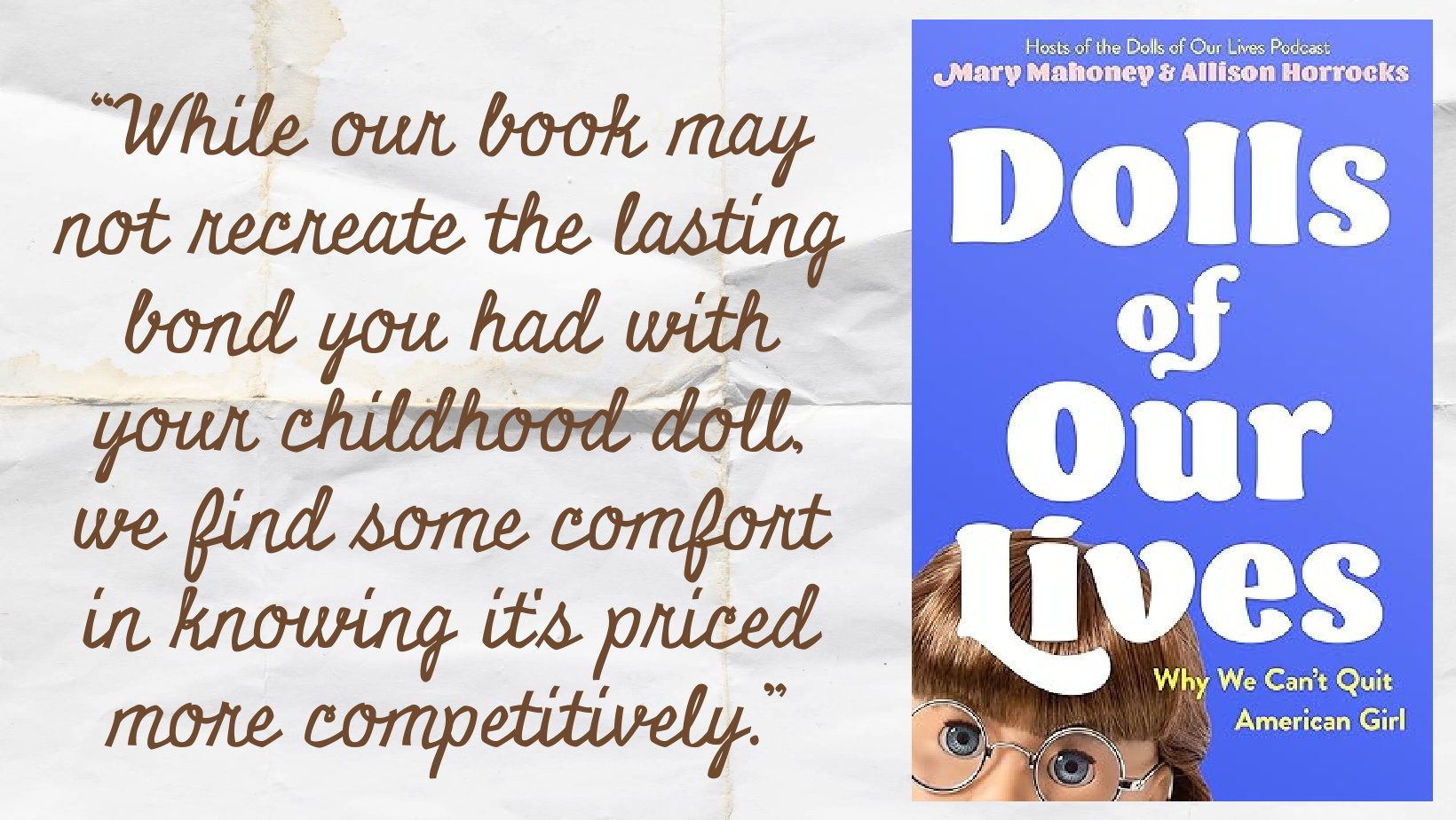
Your Story Has a Villain: Identify Spiritual Warfare and Learn How to Defeat the Enemy, by Jonathan “JP” Pokluda: There are some people who see the devil lurking around every corner; for them, spiritual warfare is as recognizable and real as the world we all can see. For most of us, though, the spiritual realm remains unnoticed and entirely unacknowledged. And it is for us that pastor J.P. Pokluda has written this book. In it, he draws our attention to the ongoing battle between Satan and God and the ways that we are constantly drawn into this raging warfare. Pokluda offers a Biblical portrait of who Satan is (and isn’t) and illuminates his primary warfare tactics (destruction, distraction, deception, disunity, desensitization, and deconstruction). He then provides guidance in how we can fight back through prayer, resisting temptation, guarding our hearts, and fortifying ourselves with the armor of God.
While this is not the intensive deep-dive into spiritual warfare that I’d hoped it would be, it is an excellent overview of the nature of spiritual warfare and how we can recognize and resist the enemy in our midst. Pokluda’s writing is conversational and engaging while remaining Biblically sound, and his ideas are specific, succinct, and memorable, with helpful anecdotes and plenty of relatability.
Books on spiritual warfare can make the mistake of ascribing too much power to the enemy. That is not the case here, and I appreciated Pokluda’s ability to shine light on this subject without glamorizing Satan or giving him too much credit. God is very much the star of this book as Pokluda continually reminds us of how the Lord helps us fight our enemy AND how He uses our stories of overcoming Satan to bring glory to His name.
My Rating: 4.5 Stars (Rounded to 4 Stars on Goodreads) // Book Format: Audiobook
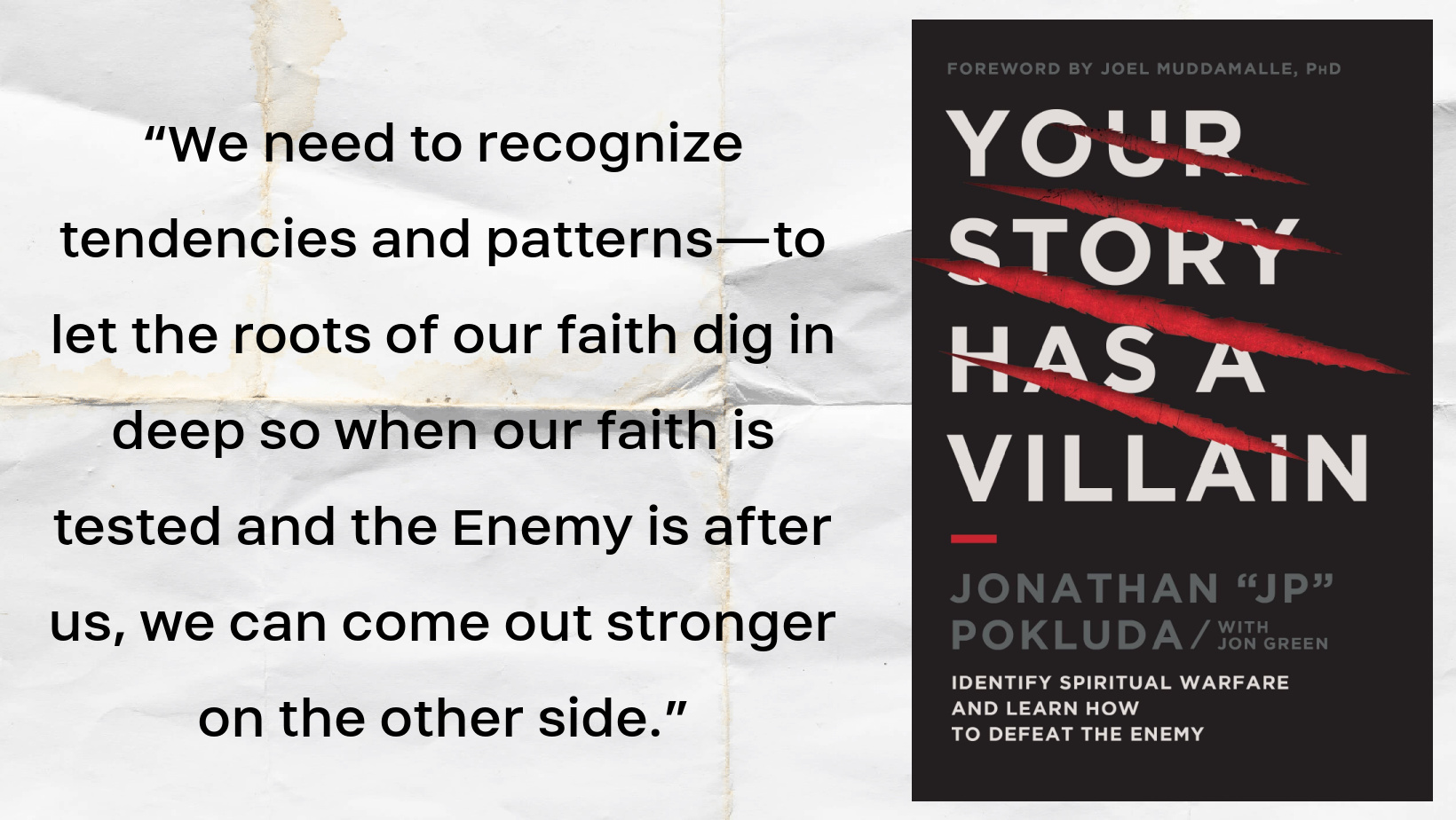
Have you read any of these books? What did you think? Please share your opinions, and if you have any books to recommend, send them my way!
I’m thrilled we share the love for The Correspondent! Fabulous review!
Summer Romance is my fav Monaghan!
Thanks Carol! So glad you and many others had such positive things to say about The Correspondent that I was eager to read it too, you were right!
I had the biggest book hangover! Then I stumbled across Theo of Golden!